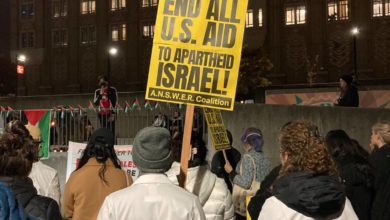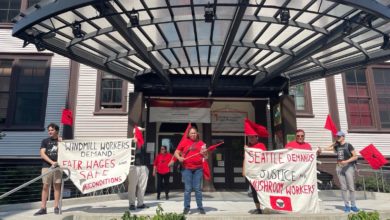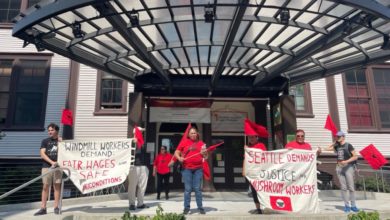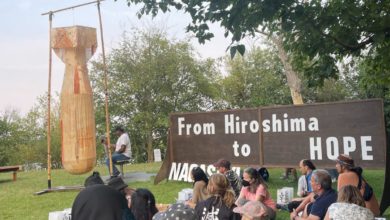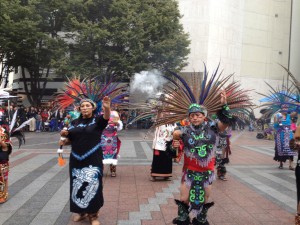 The city of Seattle has attracted national and even international attention for making the decision to no longer celebrate the “Columbus Day” holiday and instead recognize the day as Indigenous Peoples’ Day. On Oct. 13, the day of the federal holiday, Seattle’s Mayor Ed Murray will officially sign a proclamation recognizing Indigenous Peoples’ Day.
The city of Seattle has attracted national and even international attention for making the decision to no longer celebrate the “Columbus Day” holiday and instead recognize the day as Indigenous Peoples’ Day. On Oct. 13, the day of the federal holiday, Seattle’s Mayor Ed Murray will officially sign a proclamation recognizing Indigenous Peoples’ Day.
Native people and their allies in the Seattle area have not been sitting around waiting for local politicians to recognize their legitimate struggle for self-determination. For many years, Indigenous Peoples’ Day has been commemorated in the streets with an annual grassroots event and 2014 was no different.
After an opening prayer by Patricia Ann Davis, the Aztec Dancers drew a big crowd with their dynamic spiritual expression of solidarity. At one point as they danced, the sky appeared to open up and the area experienced a relatively brief but intense downpour. The dancers did not falter but continued to dance with unflagging intensity as rain flew off the drums under the drummers’ sticks.
Juan Jose Bocanegra, a local immigrant rights and labor activist chaired the rally. In his remarks, he referenced the media’s focus on the city’s decision to no longer celebrate “Columbus Day.”
“This is not a struggle between Italians and Native people,” he said. He explained that when Italians first came to the U.S, they were referred to by racist terms that indexed their status as immigrants “without papers” or as we would say today, undocumented. He also saluted the contributions of Italian American labor activists Sacco and Vanzetti, who were executed.
Jane Cutter of ANSWER and the Committee to Free the Cuban Five saluted the crowd. “Indigenous Peoples’ Day is a day to be empowered to take action in solidarity with Indigenous peoples’ struggles, in solidarity with those fighting against colonialism, imperialism and racism.” She called for freedom for Leonard Peltier and all political prisoners, and explained the case of the Cuban Five.
Also among the speakers was Jay Hollingsworth of the John T. Williams Organizing Committee, who spoke about the movement for police accountability in Seattle, which took a great leap forward as a result of the mass struggle over the police killing of Williams, a Native wood carver.

